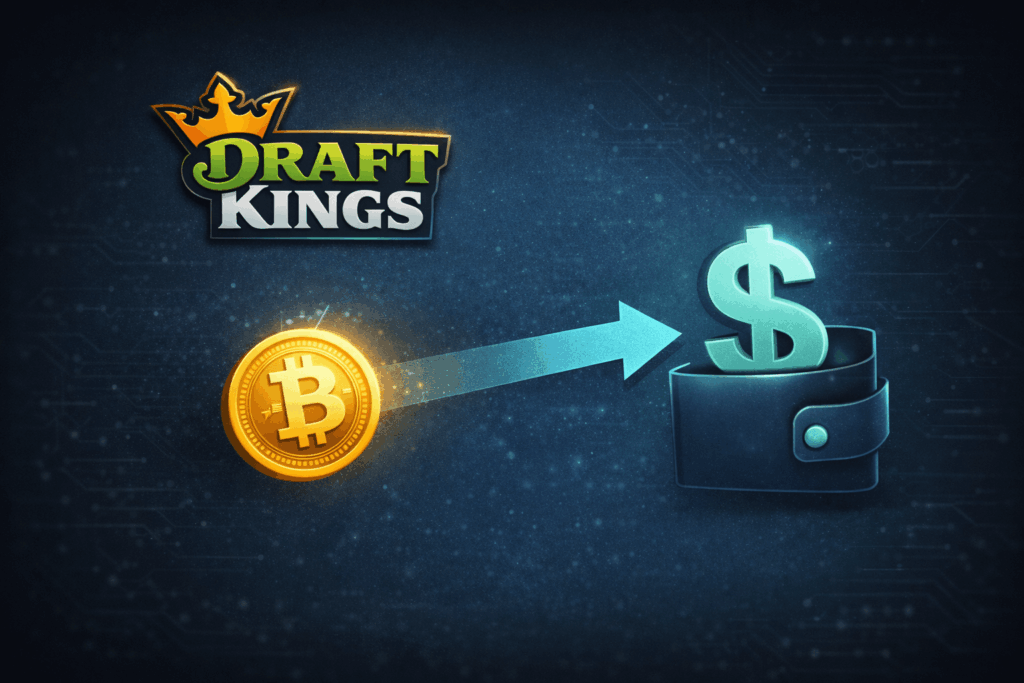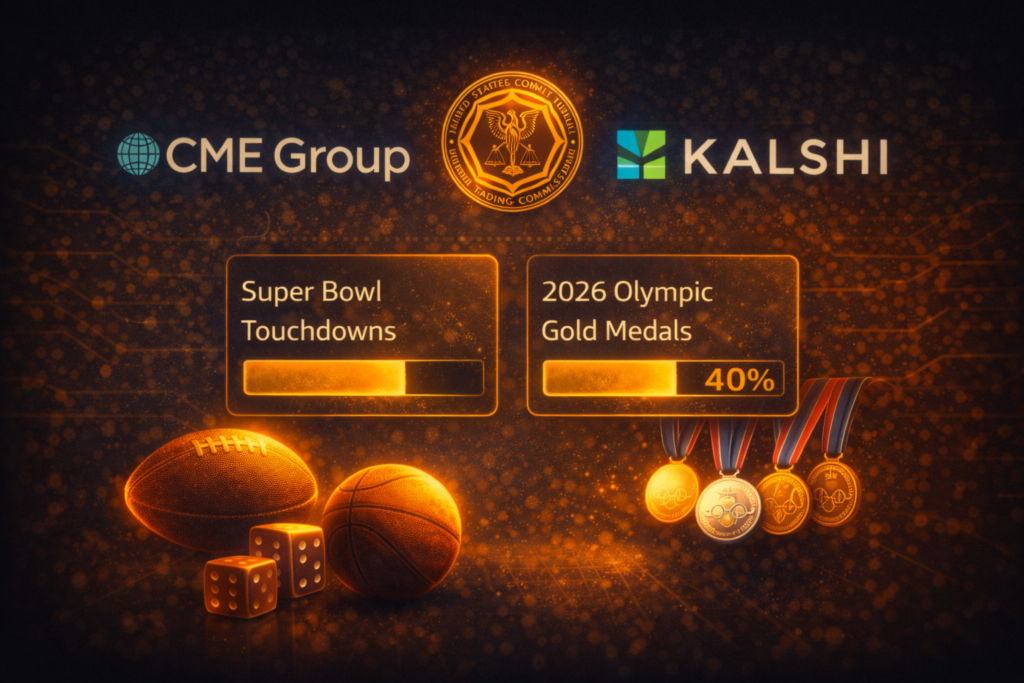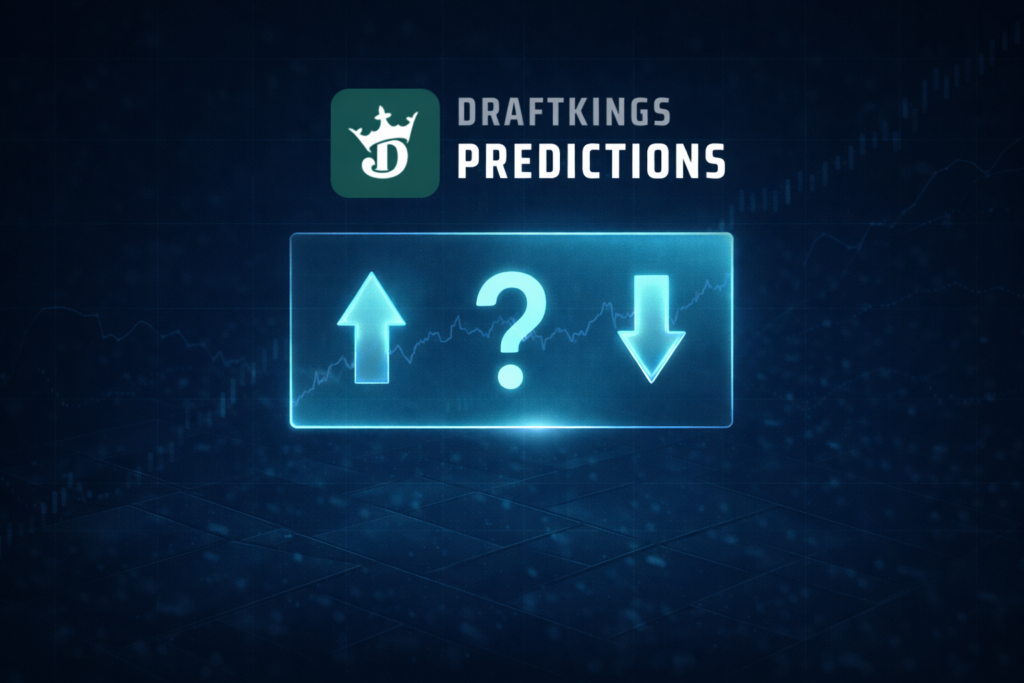DraftKings is done waiting for California and Texas to legalize sports betting, announcing in advance of its Q3 earnings call that it plans to launch a predictions markets platform that will include sports event contracts in the coming months.
While DraftKings Sportsbook operates in 25 states plus Washington DC and Missouri to come soon, about half of the country’s population remains without legal online sports wagering. It could be years before the two most populous states open their doors to mobile sportsbooks.
Florida, too, is closed to most operators, thanks to the Seminoles’ exclusive arrangement with the state.
Meanwhile, prediction markets, led by Kalshi, are offering sports event contracts in all 50 states, and DraftKings isn’t sitting idly by.
“We see Predictions as a significant incremental opportunity,” DraftKings CEO Jason Robins wrote in a letter to shareholders. “We are excited about our pending launch of DraftKings Predictions and its potential to expand our total addressable market.
“In the coming months, we expect DraftKings Predictions to enter many states with sport event contracts, unlocking a new customer base and revenue stream. Nearly half the country’s population remains without access to legal online sports betting, but there are several other companies offering federally regulated Predictions in all 50 states.”
Is DraftKings putting state licenses at risk?
Multiple states – Ohio, Arizona, Michigan, Illinois and Nevada – have warned their sports betting licensees they face serious regulatory repercussions if they get into the prediction markets business. Some of these warnings apply even if sports event contracts are offered outside the state’s borders.
Having a license revoked in one state could be just the first domino.
“Once you get a license stripped in one state it has a deleterious effect in other states,” Bill Pascrell III, an influential gambling industry attorney and lobbyist, told DeFi Rate last month.
States, though, will have to think long and hard before kicking out one of its top two sports betting tax revenue producers.
And pushing the envelope is exactly how DraftKings ascended to its dominant position.
Prediction markets dominated the Q&A portion of DraftKings’ earnings call on Friday.
Responding to a question on the company’s conversations with regulators and why it feels comfortable moving forward with prediction markets, Robins said, “Through the strength of those relationships and conversation [with regulators], we got comfortable in the approach that we’re taking. …
“As I said in our note and on the call, we aren’t going to be in every state with sports, [and] we won’t even be in every state with non-sports, and I think we have a good sense of where the sensitivity areas are.”
Robins has been consistent in his position that prediction markets won’t make much of a dent in states where sports betting is legal, a notion that lines up with the regulatory challenges.
“The states that already have legal regulated online sports betting, there isn’t going to be as much opportunity in the prediction space, at least in the sports prediction space,” he explained.
FanDuel treading more carefully?
FanDuel, DraftKings’ primary competitor in the regulated sports betting space, is also eyeing prediction markets, but the company is ostensibly being more cautious.
In August, FanDuel and CME Group announced a joint venture to develop and launch event-based contracts. DraftKings’ acquisition of Railbird Exchange, a CFTC-approved DCM, became official on Oct. 21. These deals are the sportsbooks’ on-ramp to prediction markets.
While “sports” was conspicuously absent from both the FanDuel/CME and DraftKings/Railbird announcements, the operators’ designs on sports event contract has never been a secret.
Bloomberg News reported last month the CME planned to launch sports-event contracts by the end of the year. Terry Duffy, the company’s CEO, clarified that sports has always been on the radar, but that he’s waiting for a firm ruling from the federal government on the legality of sports-based contacts before moving forward on them.
“As long as the U.S. government is not going to object to the self-certification of these and consider these swaps and not gaming … we will proceed accordingly,” Duffy said on CME’s Q3 earnings call in October.
DraftKings bullish
A dip in sportsbook stocks has come in conjunction with the rise of prediction markets. The opportunities that await, though, have Robins optimistic.
In other news yesterday, DraftKings announced a deal to become ESPN’s official sportsbook and odds provider, following news that PENN Entertainment and the sports media giant are shutting ESPNBet.
“This is the most bullish I have ever felt about the future of DraftKings,” Robins told shareholders and analysts. “That may sound surprising given we are revising our fiscal year 2025 guidance ranges today, however, underlying growth in our business is accelerating. We are also increasingly advantaged through new exclusive marketing agreements with ESPN and NBCUniversal as well as our leading product offerings continuing to improve. Finally, we are launching DraftKings Predictions in the coming months.”
In his typically bold fashion, Robins added of prediction markets, “We will pursue this opportunity, we will compete, and we will win. For the same reasons that we have been successful competing in the sports betting industry, we expect to succeed here.”










